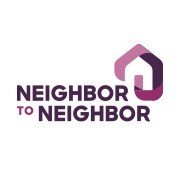Curious about the types of housing resources available to CSU employees?
Five free “Lunch and Learn” sessions are being hosted by the Classified Personnel Council during the month of April. While they are tailored to the needs of classified staff, all CSU employees are welcome.
 Light refreshments will be provided, and participants are invited to bring their own lunches to the sessions in the Lory Student Center, all of which will be held from noon to 1 p.m.:
Light refreshments will be provided, and participants are invited to bring their own lunches to the sessions in the Lory Student Center, all of which will be held from noon to 1 p.m.:
- April 9: LSC Room 376, “EAP’s ComPsych – Online Resources”
- April 10: LSC Room 312, “Rent Smart”
- April 19: LSC Room 322, “Take Charge of Your Credit”
- April 23: LSC Room 322, “Money Management”
- April 26: LSC Room 322, “Homebuying 101”
While no reservation is required, due to space limitations attendance will be capped at 30 people per session — first come, first served.
The Lunch and Learn series will feature information about the ongoing partnership CSU has with Neighbor to Neighbor, in an effort to ensure that all university staff and faculty have a home that is safe, healthy and affordable.

The sessions will feature presentations by Neighbor to Neighbor Housing Solutions Coordinator Debbie Mayer, Community Resources Coordinator Emma Chavez of the CARE Program and Jan Pierce, interim coordinator of the Employee Assistance Program.
Kelly Hixson, chair of the CPC’s Work-Life Committee, said Mayer will discuss the various forms of housing assistance available on campus and in the community, while Chavez and Pierce will outline housing and financial resources provided through ComPsych guidance resources, a contracted provider for EAP services. That session will have a few computers available to those interested in registering to ComPsych and learn about their services.
Hixson, who serves as a custodial supervisor in Housing and Dining Services, said the sessions were prompted by a recent CPC survey that asked classified staff to identify issues they wanted more information about. In addition to resources around rental housing and home ownership, employees’ most common topics included money management and child/dependent care.
Available housing resources

The resources that Mayer provides in her role on campus include:
- Short-term financial assistance to help secure housing or to avoid eviction. This includes the Emergency Rent Assistance program, in which a grant of up to $350 is available to help overcome a client’s immediate housing crisis and make progress toward housing stability. Short-term financial assistance is also available in the First Month’s Rent program, for clients who show a demonstrated financial need. This program can help them to attain affordable, sustainable housing by providing a grant of up to $500 toward their first month’s rent.
- Rental Housing Search Assistance, which involves providing information, education and resources about identifying an affordable rental.
- Housing Information Sessions, in which employees can work directly with a housing counselor regarding a range of housing issues. These sessions cover topics related to rental properties and includes information about lease agreements, the costs associated with renting and landlord/tenant responsibilities, as well as homeownership possibilities. While it’s not legal advice, the sessions provide staff and faculty with local resources and tools they need to navigate their rental situation and explore their options as a renter or potential homeowner.
- Serving as a liaison for other Neighbor to Neighbor programs, such as Homebuyer Education, Foreclosure Prevention Counseling, Reverse Mortgage Counseling and HomeShare.

Mayer is based in the Off-Campus Life office in the Lory Student Center, Room 274, and works directly with university staff and faculty. She offers confidential, one-on-one meetings and is available for walk-ins and appointments Monday through Thursday during regular business hours. Staff and faculty can contact her at the Off-Campus Life front desk, by phone at 970-491-3233 or via email at deborah.mayer@colostate.edu.
The local housing market
Fort Collins’ rental prices and home-sale prices are increasingly out of reach for many university employees. The affordable housing gap continues to be exacerbated by the region’s growth and lack of inventory. Growth is driving up prices — not just for buyers, but also renters, according to Jean Ortega, director of Off-Campus Life. “Our community’s success has created a squeeze in terms of affordable housing,” she said. “We’re faced with increased rents, decreased availability and increased demand.”
As of June 2018, the Fort Collins vacancy rate was still below 5 percent (which is considered a balanced market), at 4.1. Even with the ease in the vacancy rate, the prices remain high, with a median monthly rent amount of $1,337. Therefore, a one-income household would need to earn about $25 an hour to rent an apartment without spending more than 30 percent of its income on rent.
The partnership with Neighbor to Neighbor recognizes the need for improved housing stability and economic health among staff to recruit and retain a vibrant and talented workforce. In addition, it has become increasingly clear that stable housing is fundamental to maintaining good health.
The partnership aims to provide aid to employees, especially those on the lower-wage scale, who are struggling with the city’s expensive housing market.